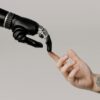What is Manufacturing Technology? Definition, Benefits, and Real-World Examples
In the age of automation and Industry 4.0, Manufacturing Technology plays a vital role in increasing productivity, reducing costs, and ensuring product quality. From robotics to 3D printing, modern manufacturing methods are transforming industries across the globe.
This article explores what manufacturing technology is, its key benefits, and examples of how it’s used in real-world industries.
What is Manufacturing Technology?
Manufacturing technology refers to the tools, machinery, equipment, and processes used to produce goods more efficiently and accurately. It combines mechanical systems, digital tools, and automation to streamline production in factories and workshops.
This technology is the backbone of industries like automotive, electronics, textiles, pharmaceuticals, and more.
Read More: manufacturing technology definition, what is manufacturing tech, modern production methods
✅ Benefits of Manufacturing Technology
Here are some of the top advantages of using technology in the manufacturing process:
- Higher Production Efficiency – Faster and more consistent output
- Improved Product Quality – Precision machinery reduces human error
- Cost Reduction – Automated systems save on labor and material waste
- Enhanced Safety – Robotics and AI reduce human exposure to dangerous tasks
- Customization – Technologies like 3D printing allow flexible, small-batch production
Read More: benefits of manufacturing technology, automation in manufacturing
Examples of Manufacturing Technology
Here are some real-world examples of technologies used in modern manufacturing:
1.Computer Numerical Control (CNC) Machines
CNC machines use software to control lathes, mills, grinders, and routers with extreme precision. They are widely used in metal and plastic part production.
Read More: CNC machining, precision manufacturing
2.3D Printing (Additive Manufacturing)
This process builds objects layer by layer from digital models, allowing for rapid prototyping and custom product development.
Used in: Medical devices, automotive parts, fashion, and consumer electronics.
Read More: 3D printing in manufacturing, additive manufacturing examples
3.Industrial Robots
Robotic arms and automated systems are used for assembling, welding, painting, packaging, and more. Robots reduce labor costs and increase safety.
Read More: robotics in manufacturing, industrial automation
4.Internet of Things (IoT) in Factories
IoT sensors collect real-time data on machine performance, inventory levels, and production conditions to optimize efficiency.
Read More: smart factories, IoT in manufacturing
5.Computer-Aided Design (CAD) & Computer-Aided Manufacturing (CAM)
CAD software is used to design products digitally, while CAM systems translate those designs into machine instructions.
Read More: CAD CAM in manufacturing, digital product design
Applications of Manufacturing Technology in Industries
- Automobile Industry – Robotic assembly lines for mass car production
- Textile Industry – Automated weaving machines and fabric cutters
- Electronics Industry – PCB manufacturing, soldering robots, and cleanroom technology
- Food Industry – Automated bottling, packaging, and labeling machines
- Pharmaceuticals – Precision drug formulation and packaging systems
Read More: manufacturing sectors, tech in different industries
Challenges of Manufacturing Technology
Despite its advantages, manufacturing tech comes with a few challenges:
- High Initial Investment – Advanced machines and software are costly
- Skilled Labor Requirement – Workers need training to operate tech-based systems
- Cybersecurity Risks – Smart factories are vulnerable to cyber-attacks
- Maintenance & Downtime – Machines require regular upkeep to avoid breakdowns
Read More: manufacturing technology challenges, risks of automation
The Future of Manufacturing Technology
As we move into Industry 5.0, the future of manufacturing will focus on:
- Human-machine collaboration
- AI-driven predictive maintenance
- Sustainable and green manufacturing
- Cloud-based factory management
- Augmented Reality (AR) for training and repair
Read More: future of manufacturing, industry 5.0 trends
✅ Conclusion
Manufacturing technology is the driving force behind modern industrial success. By embracing tools like CNC machines, 3D printing, industrial robotics, and smart sensors, companies can improve their productivity, reduce waste, and stay competitive in the global market.
As innovation continues, businesses that invest in advanced manufacturing technology will be better equipped to meet customer demands and operate more sustainably.








